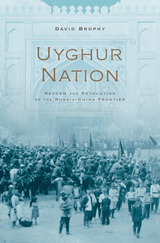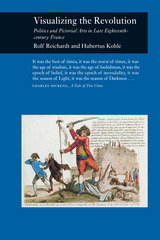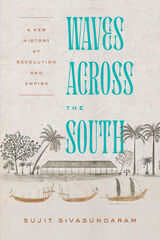Deeply researched and forcefully written…shed[s] light on an embarrassing period in American diplomacy…Neiberg offers a mesmerizing account of how the U.S., as it anticipated another European war, stumbled through attempts to neutralize Vichy France…Neiberg deftly explains the confused politics and diplomacy that bedeviled the war against the Nazis.
-- Ronald C. Rosbottom Wall Street Journal
Meticulously researched but extremely readable…[An] excellent book.
-- Julian Jackson Washington Post
Michael Neiberg is one of the very best historians on wartime France, and his approach to the fall of France and its consequences is truly original and perceptive as well as superbly written.
-- Antony Beevor, author of The Second World War
It is difficult to find WWII material that is both interesting and fresh, but this book qualifies.
-- Tyler Cowen Marginal Revolution
The fall of France shattered the illusion that the United States could stay on the sidelines while Nazi Germany carved up Europe. Writing with clarity and verve, deep knowledge of French sources, and a keen eye for human foibles, Neiberg explains how the defeat of June 1940 transformed America’s relationship with France and compelled a rethinking of America’s world role. A smart and fresh analysis of Franco–American relations in the darkest hour of our long friendship.
-- William I. Hitchcock, author of The Age of Eisenhower: America and the World in the 1950s
Neiberg has rescued an important episode in the history of the Second World War from relative obscurity and done so in great style. His book, with its terrific cast of characters and fast-paced story, reads like a novel and is at the same time an outstanding piece of historical research and analysis.
-- Margaret MacMillan, author of War: How Conflict Shaped Us
An utterly gripping account, the best to date, of relations within the turbulent triumvirate of France, Britain, and America in the Second World War. Neiberg vividly brings to life the extraordinary military, domestic, personal, and political pressures on giants such as Franklin Roosevelt, Winston Churchill, and Charles de Gaulle, while also showing the immediate practical effect their interactions had on ordinary people in the struggle against the Nazis.
-- Andrew Roberts, author of Churchill: Walking with Destiny
An excellent book, the product of deep research, clear thought, and gripping writing. Neiberg restores France and the French Empire to its rightful place in the history of the strategy of the Atlantic powers in the Second World War. In so doing, he allows us to understand anew how shocking the French defeat in 1940 was for American policymakers, and the profound consequences that reverberated from that shock for the subsequent course of the war.
-- Daniel Todman, author of Britain’s War: A New World, 1942–1947
Expertly researched and a pleasure to read, When France Fell fills an important gap in the history of World War II by analyzing American relations with Vichy and Free French forces, how the geopolitical position of France’s colonial holdings steered US policy, and how those decisions deeply strained Anglo–American relations. The story Neiberg tells is one of misguided calculations and ultimately tremendous luck that Americans’ ‘Vichy gamble’ did not cause more political and military turmoil.
-- Brooke L. Blower, author of Becoming Americans in Paris: Transatlantic Politics and Culture between the World Wars
Neiberg’s fascinating and compelling study places France back at the heart of the story of the Second World War. He crafts a vivid narrative of the extraordinary and radical transformations that accompanied the catastrophe in France. The consequences of defeat were profound for a divided Gallic nation, but they were also defining for Britain and America; the defeat of Europe’s premier land power put a nail in the coffin of one superpower and sparked the rise of another. Highly recommended!
-- Jonathan Fennell, author of Fighting the People’s War: The British and Commonwealth Armies and the Second World War
An important and fascinating book that examines U.S. policy towards Vichy—a policy which not only put the United States at odds with its wartime ally, Great Britain, but also was destined to fail…While numerous books have been written on the fall of France, U.S. policy toward Vichy has been curiously overlooked in recent years. Neiberg remedies this…Highly readable [and] filled with interesting, larger-than-life characters.
-- Sean Durns National Interest
This is an extremely well researched and readable book. And it is a reminder that in wartime, fighting the enemy can often be less complicated than dealing with your allies.
-- Calum Henderson Military History Matters
A superbly crafted synthesis of military, diplomatic, and political history…Neiberg concludes that America’s flirtation with Vichy did not go disastrously wrong, but cautions that this had little to do with wise decision-making in Washington…[An] excellent book.
-- Carl Cavanagh Hodge Michigan War Studies Review
Punctures the myths of the conventional American story of the Second World War…Important, well argued, deeply researched, and a pleasure to read, written by one of the most productive and accomplished American historians of both world wars.
-- Richard Fogarty H-Net Reviews
Neiberg’s important new book, When France Fell, chronicles the often-bungled attempts of the United States to redefine its strategy and navigate its relationship with Vichy France. It is one of the first, if not the first, work in English to address the strategic relationship between the United States and France during the Second World War…A timely reminder of the importance of statecraft in an age where international incivility runs rampant.
-- Cameron Zinsou H-Diplo












